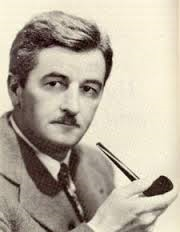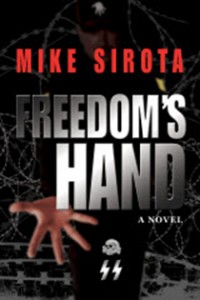When it comes to writing, old rules are still good rules. This post first ran in 2014.
In my centuries of evaluating and editing manuscripts I’ve probably been through five million of ’em. (Wait, I’m not supposed to exaggerate; it’s only one million.) With that large a sample size it’s clear that many of the same mistakes plague writers, whether they’re newbies or successful, multi-published authors. Here are just a few of them.
 EACH OTHER/ONE ANOTHER
EACH OTHER/ONE ANOTHER
I’m going old school on this to say that I use “each other” when referring to two people (“John and Mary looked at each other in disbelief”) and “one another” when referring to three or more people. (“The tour group took care of one another after their guide disappeared.”) This rule has evolved through the years to the point where, these days, most grammarians will agree that the two are interchangeable.
So why do I go old school? Years ago I submitted a couple chapters of a novel to a literary agent. The proposal came back with a rejection note. (What a surprise, eh?) The agent’s only comment? I didn’t know the difference between “each other” and “one another.” As I’ve always said, why give an agent or publisher ANY reason to reject your work? I’ll be using the old rule on this until the Mother Ship arrives.
EXCLAMATION POINTS!!!
To be sure, an exclamation point is perfectly good punctuation! But here is the thing! Many writers tend to overuse them! Just like I’m doing here! I assume it’s annoying the crap out of you!
Seriously, the fewer of them you use, the stronger effect they’ll have when you do insert one. There is a school of writing thought that suggests not using any at all. I don’t buy into that. Why? Read this same sentence two ways:
- The piano is going to fall on that man’s head.
- The piano is going to fall on that man’s head!
I see far more overuse of exclamation points than the other way around. The record breaker (I’m not making this up): a manuscript in which every second sentence ended with one. I mean, read these sentences with the proper emphasis on the last word.
- I’m going to the store!
- The car is parked in the driveway!
- I think I’ll brush my teeth!
You get the point (pun intended): save your exclamation points for when they count.
LOOSE/LOSE
So many of my best and most educated writers mess this one up. All wrong:
- He had so much to loose.
- The wild horses ran lose on the plain.
- Did you loose all your money at the blackjack table?
- There are lots of lose women in that bar.
If it ever does stump you, remember this sentence: “I hope that I don’t lose all of the loose change in my pocket.”
TWO- AND THREE-BREATH SENTENCES

William Faulkner wrote some long sentences.
Some writers get carried away with their prose and write sentences that seem to go on forever and ever and what they don’t realize is that they can lose their readers when they do this kind of thing because people like to be able to take a breath now and then and when you write endless sentences with little or no punctuation they don’t have a place to insert the figurative bookmark so they say to themselves that this person writes sentences like Faulkner used to write and since they didn’t like Faulkner when they had to read him in high school they’re going to put this book down and…
Did I make my point? Avoid overlong sentences.
EVERYDAY/EVERY DAY
I’ve seen this one handled improperly on billboards, in TV and newspaper ads, you name it. I’m sure you have too. For example: “Low prices everyday!” Wrong-o. “Everyday” is a one-word adjective meaning “used routinely.” The two-word phrase “every day” can be interchanged with “each day.”
-

This ad had it right AND wrong.
Wrong: “John did his chores everyday.”
- Correct: “John did his chores every day.”
- Wrong: “John did his every day chores.”
- Correct: “John did his everyday chores.”
With regard to common writing mistakes, this post is barely scratching the surface. When in doubt, get yourself a good editor.
PRAISE FOR FREEDOM’S HAND
 A recent review: “You can’t stop reading it once you stop. Yes, it’s well written. Yes, it’s framed in a believable manner that makes you think it really could be possible in our day. Yes, it’s gripping. But that’s not why you can’t stop reading once you start.
A recent review: “You can’t stop reading it once you stop. Yes, it’s well written. Yes, it’s framed in a believable manner that makes you think it really could be possible in our day. Yes, it’s gripping. But that’s not why you can’t stop reading once you start.
“We hear about the Nazi concentration camps, see clips of black and white film strips, make movies that try to recreate what it must have been like, and go to museums. But…nothing makes you feel like ‘you’ are a character in those camps, experiencing the terror yourself. Sirota places you there, in this modern day story of a resurgence of Nazism and death camps—but here in America. You feel trapped with the characters, one of them. Your survival instincts will kick in as you read, and you’ll feel the need to plan an escape in your head…or die trying.”

I enjoyed this column, Mike. One of my favorites(?) is the misuse of “lie” and “lay.”
Yeah, Dennis, “lie” and “lay” continue to plague me to this day.
I got this handy little table out of my wife’s Harbrace College Handbook and I would include it in virtually every client critique I did while I was editing manuscripts:
Present Stem (infinitive) Past Tense Past Participle Present Participle
Lie (to recline) lay lain lying
Lay (to put or place) laid laid laying
Well, the spacing in the table didn’t hold up, but I think you can get the gist.
I did…and it still confuses the heck out of me! 🙂